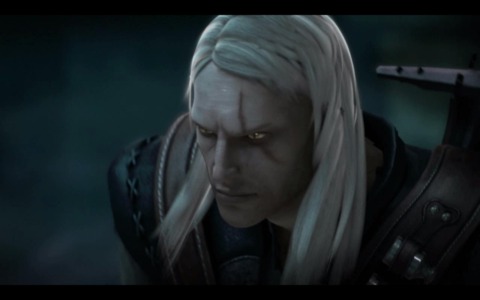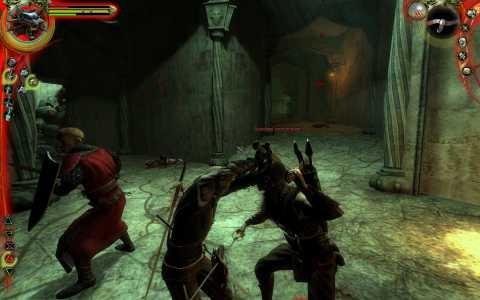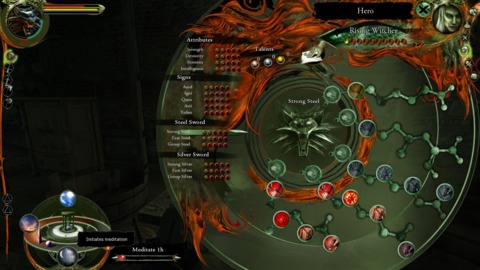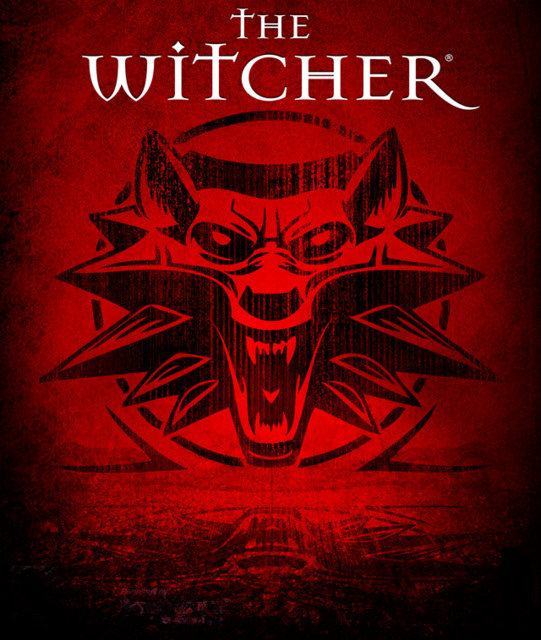The Witcher: Enhanced Edition Review
Back in 2007, CD Projekt released The Witcher, a fantasy RPG based on the series of books written by Andrzej Sapkowski. The game was well received by critics, but suffered from a plethora of technical problems. About a year later, The Witcher: Enhanced Edition was released, either as a separate game for newcomers or as a free update for those who had already purchased the original game. The Enhanced Edition allegedly fixed many of the games bugs, costing CD Projeckt approximately $1 million. The question is, was it worth it?

The Witcher revolves around Geralt of Rivia, a mutant monster slayer, or witcher, who gained fame by freeing a princess from a powerful curse. The story begins during the aftermath of a fierce battle that left Geralt with severe injuries and a case of amnesia. It’s a tired premise, but it gives the game a reason for characters to “re-explain” things, rather than forcing players to wade through pages and pages of text.
The Witcher is broken up into different chapters, with each one featuring rich open-world environments for you to explore. When you’re not completing quests or hunting monsters, you will be offered a variety of dialogue options that can dramatically alter how the story unfolds. While this isn’t exactly new, The Witcher doesn’t present you with the obvious “good” or “evil” choices that are common in many RPGs. Instead, you’re met with choices that are both controversial but defendable. I had to stop several times when met with a tough decision, and really contemplate which choice was the lesser of two evils. Few games have managed to pull this off, and it’s one of The Witcher’s greatest strengths.

The combat is similar to most other fantasy RPG’s, with swordplay and magic being your monster-slaying meat and potatoes. Melee combat uses a point and click system, with well-timed clicks allowing for devastating combos. The game also allows you to change combat styles, depending on the type of enemy you’re fighting. The combat feels stupid simple at first, but the addition of magic and potions later on will demand your attention.
Magic also uses a simple yet effective system, with only five spells to choose from. Players who are used to screen-wide hot bars may be left wanting; though an extensive upgrade system keeps spells effective until the credits roll. Players are encouraged to upgrade Geralt in a way that fits their playstyle. There is no “wrong way” to play The Witcher, and it’s nice that players won’t be punished for experimenting with different play styles.

What distinguishes The Witcher from its RPG brethren is its focus on creating performance enhancing items like potions and oils. Rather than having you cast enchantments on your equipment, The Witcher hosts an intricate alchemy system which allows Geralt to create a variety of stat enhancing items. These range from potions like “Cat” which gives Geralt night vision, to “Blizzard” which seemingly slows down time and boosts Geralt’s reflexes, allowing him to pummel his enemies before they can even touch him. Geralt can also coat his sword in a variety of oils which increase his effectiveness against certain types of enemies. Learning how to effectively make and use these performance enhancing items can turn impossible battles into winnable ones.
Visually, The Witcher is a mixed bag. Each chapter hosts an assortment of distinct environments, each with their own identity. The combat animations are fluid and, making the combat not only fun to play, but fun to watch. Unfortunately, the same can’t be said about the facial animations. It’s not even fair to call them “facial animations” as none of the character’s faces seem to animate. Every single character in The Witcher gives a dead stare, as if they lack the facial muscles necessary to form a smile or furrow their brow. It doesn’t ruin the story, but there’s a lot of wasted potential.
While the lip syncing is rough around the edges, the game’s voice acting is commendable. The Witcher has many, many lines of dialogue and which are read in a way that will keep you from skipping the dialogue after reading through the subtitles. Some voice actors are noticeably better than others, but no one is downright awful.
The Witcher isn’t meant for everyone. First off, it doesn’t have a fast travel system, meaning a lot of your time will be spent running back and forth between quest givers, which quickly gets old. The game also doesn’t do a great job explaining how to continue on with certain quests, and requires some outside research. If you can get past these issues, The Witcher is a fantastic RPG that deserves the attention of anyone even remotely interested in the genre.
Note: I have only played the “Enhanced Edition” of The Witcher. Any reference I make to “The Witcher” is in regards to that edition.
